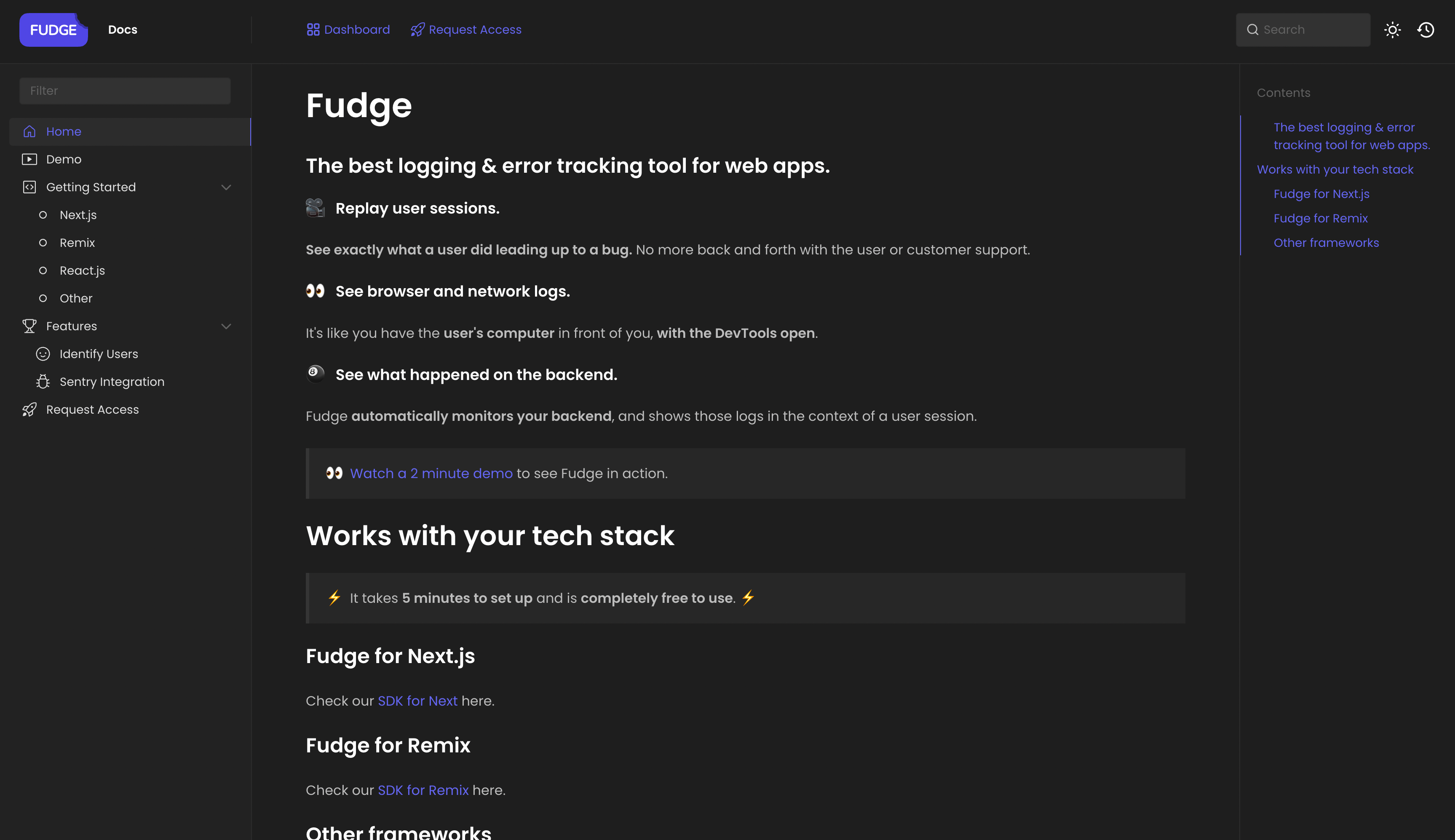Changelog
Follow up on the latest improvements and updates.
RSS
The Errors Tab
makes it easy to find the errors that actually cause user issues
.You can quickly glance over all the sessions where a specific error happened, to see how the error is affecting user experience.
Now, you can ignore the errors that don't matter, and fix the ones that do. 🚀
You can use our Sentry integration to
open a Fudge session right from a Sentry error
.Prioritizing which errors in Sentry to fix is hard, because the error itself normally doesn't give you an idea of the severity of the user impact.
But now,
you can see how an error actually affected the user experience, by viewing their session in Fudge
.It takes less than 2 minutes to set up: https://docs.fudge.ai/features/sentry/
We now have a docs site, to make it easy for you to get started with Fudge.
Check it out at docs.fudge.ai.

You can now
see user information for a session
, and find all sessions for a particular user
.When a user runs into an issue, and they contact you, they usually don't give you enough information for you to investigate the issue.
Now, you can open up Fudge, find a particular user's session, and see exactly what they experienced.
Set up user identification in under 2 minutes: docs.fudge.ai/features/identify
new
improved
Multi-tab sessions 👩💻
You can now
play back sessions where a user opens multiple tabs
. You see a visualization of which tabs are open, and which one is active. It looks just like a real browser
.Other session playback tools either don't support this, or play back the different tabs one after the other, rather than showing how the user interacted with them in real-time.
new
Next.js SDK
We now offer a special Fudge SDK for Next.js.
When you use this SDK,
your server-side logs will automatically combined with related frontend network requests
. Pure magic! ✨We're planning on adding even more Next-specific features soon! If there's something you'd like to see, please get in touch.
Set up Fudge on your Next app in under 2 minutes: docs.fudge.ai/install/next
Here's a full demo of how our Next integration works: